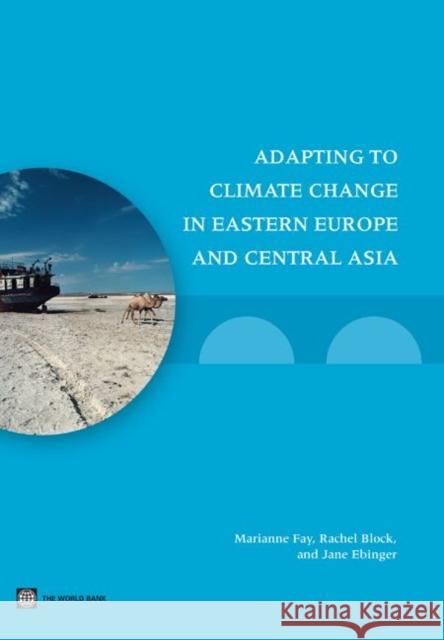Adapting to Climate Change in Eastern Europe and Central Asia » książka
Adapting to Climate Change in Eastern Europe and Central Asia
ISBN-13: 9780821381311 / Angielski / Miękka / 2010 / 192 str.
The region of Eastern Europe and Central Asia (ECA) is already experiencing the consequences of climate change: increasing variability, warmer temperatures, altered hydrology. Events such as droughts, floods, heat waves, windstorms, and forest fires are increasing in number and severity. The concentration of greenhouse gases already in the atmosphere guarantees that similar or greater changes are yet to come even if the world were to completely stop emitting CO2 today. This region is particularly vulnerable because of its legacy of socioeconomic issues, environmental mismanagement, aging infrastructure and housing, and under-investment in hydrometeorological, rural, and health institutions. The resulting adaptation deficit will exacerbate climate risks and hamper the ability of sectors that could gain from climate change, such as agriculture, to reap the full benefits. 'Adapting to Climate Change in Eastern Europe and Central Asia' presents an overview of what adaptation to climate change might mean for the countries of ECA. It starts with a discussion of emerging best-practice adaptation planning around the world and a review of the latest climate projections. It then discusses possible actions to improve resilience organized around impacts on natural resources, health, the unbuilt environment of agriculture and forestry, and the built environment of infrastructure and housing. The book concludes with a discussion of two areas in great need of strengthening: disaster preparedness and hydrometeorological services. The next decade offers a window of opportunity for ECA countries to make their development more resilient to climate change. While some impacts of climate change are already being felt, they are likely to remain manageable over the next decade, offering the ECA region a short period of time to focus on actions that have numerous benefits both today and in the future."











